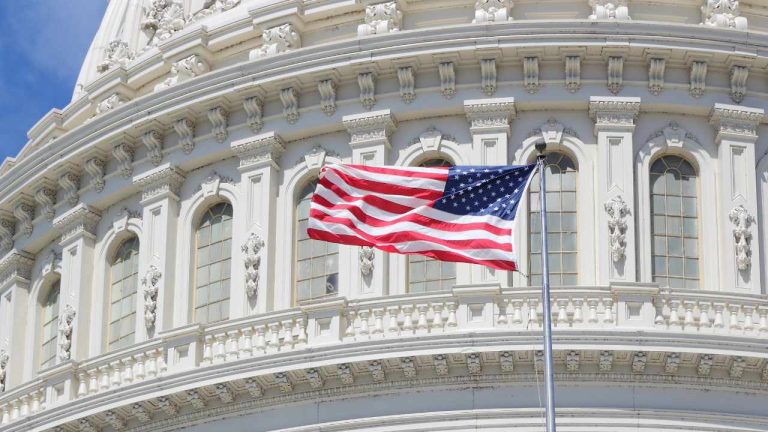US Lawmakers Launch Bill to Counter Terrorism and Threats Involving Digital Assets

Several U.S. lawmakers have introduced a bipartisan bill to crack down on terrorist organizations by applying sanctions to foreign entities, including crypto platforms, that facilitate financial transactions for terrorists. The legislation would also “equip the Treasury Department with additional resources to counter terrorism and address emerging threats involving digital assets,” said one of the lawmakers who introduced the bill.
Terrorism Financing Prevention Act
U.S. Senators Mark Warner (D-VA), Mike Rounds (R-SD), Jack Reed (D-RI), and Mitt Romney (R-UT) announced Thursday that they have introduced bipartisan legislation titled Terrorist Financing Prevention Act of 2023 to “crack down on terrorist organizations like Hamas by applying sanctions to foreign parties that facilitate financial transactions with terrorists.”
The announcement explains: “Currently, these sanctions are imposed only in limited circumstances, primarily on the terrorist group Hezbollah following passage of the Hizballah International Financing Prevention Act in 2015. The Terrorism Financing Prevention Act introduced today will expand this type of sanctions to cover all U.S.-designated Foreign Terrorist Organizations (FTOs), including Hamas, and other foreign parties that are controlled by or act on behalf of those FTOs.”
Senator Rounds commented:
The Terrorism Financing Prevention Act takes commonsense steps toward rooting out terrorism by sanctioning foreign financial institutions and foreign digital asset companies that assist them in committing these heinous acts. Cutting off funding for terrorist organizations at the source will save lives.
“It is critical to bolster the Treasury Department’s tools to protect our national and economic security. With this bill, we are forcing foreign financial institutions and foreign crypto firms to choose between doing business with terrorist organizations or maintaining access to the U.S. financial system,” Senator Reed opined.
Specifically, the bill requires the U.S. Department of the Treasury to “identify any foreign bank or foreign digital asset transaction facilitator that knowingly facilitates transactions with an FTO or related party,” the announcement notes. “Once these actors are identified, the bill requires imposition of sanctions on them, restricting either their use of U.S. correspondent bank accounts (in the case of a bank), or barring their digital asset or other transactions with U.S. persons (in the case of a digital asset transaction facilitator).”
The bill also contains a key provision from the Crypto-Asset National Security Enhancement and Enforcement (CANSEE) Act the senators previously introduced. This provision will provide the Financial Crimes Enforcement Network (FinCEN) “with appropriate tools to address threats involving digital assets and non-traditional finance networks,” the senators explained.
Noting that the Oct. 7 attacks on Israel perpetrated by Hamas “have made it more urgent and necessary for the U.S. to counter the role that cryptocurrency plays in the financing of terrorism,” Senator Romney described:
Our legislation would expand financial sanctions to cover all terrorist organizations — including Hamas — and it would equip the Treasury Department with additional resources to counter terrorism and address emerging threats involving digital assets.
What do you think about this bill? Let us know in the comments section below.

